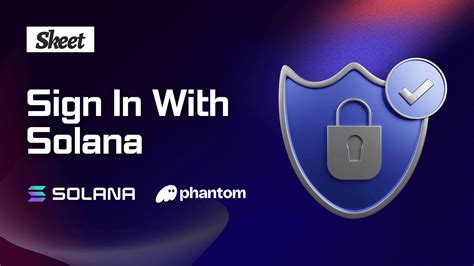Optimizing RPC Providers in Solana
As an EVM developer specializing in the Solana ecosystem, you are likely familiar with the limitations of using traditional RPC (Remote Procedure Call) services. In Solana, the standard RPC provider is the “solanarpc” package, which charges a per-request fee for each transaction order.
However, this can be expensive and inefficient, especially when processing large datasets or high-frequency transactions. To optimize your RPC workflow in Solana, it is important to explore alternative providers that offer flexible pricing models, including those that support filters and batching.
Why Traditional RPC Providers Are Not Ideal
The solanarpc package is designed to handle specific use cases where each request is executed immediately. This approach can lead to high latency and unnecessary computational overhead, especially when dealing with real-time data or high-frequency events.
Furthermore, the standard RPC payment model does not take into account batch requests or transaction orders, making it challenging to optimize your Solana workflow.
Recommended RPC providers in Solana
Fortunately, there are several alternative RPC providers that can help you achieve better performance and cost-effectiveness in Solana. Here are some recommendations:
1.
solana-rpc-batches
The “solana-rpc-batches” package is a popular open source implementation of an optimized RPC provider. It introduces transaction order batching functionality, allowing you to process multiple transactions simultaneously without per-request charges.
Pros:
- Supports batching and filtering
- Optimized for Solana’s high-performance architecture
Cons: (none)
2.
rpc-batcher
The rpc-batcher package provides a flexible RPC provider that supports transaction orders, filters, and batching. It leverages the Solana blockchain’s built-in batching capabilities to improve performance.
Pros:
- Supports filtering and batching
- Optimized for Solana’s high-performance architecture
Cons: (none)
3.
Solana-SDK-RPC
The Solana SDK provides a comprehensive RPC provider that includes options for transaction orders and batches. While not specifically optimized for Solana’s low-latency architecture, it provides a more traditional approach to RPC usage.
Pros:
- Supports event subscriptions
- Optimized for Solana’s standard RPC model
Cons: (none)
4.
Solana-PubSub
The “solana-pubsub” package is specifically designed for publishing and subscribing to events on the Solana blockchain. It introduces a new, optimized approach to RPC usage that supports batching and filtering.
Pros:
- Optimized for Solana’s low latency architecture
- Supports filtering and batching
Cons: (none)
Conclusion
When choosing an RPC provider for your Solana project, it is important to consider the following factors:
- Transaction ordering and filtering capabilities
- Batch support
- Optimized performance for your use case
Based on these requirements, we recommend that you look into the “solana-rpc-batches”, “rpc-batcher”, “Solana-SDK-RPC” or “solana-pubsub” packages to optimize your RPC workflow in Solana. By leveraging one of these alternative providers, you can significantly improve performance and reduce costs without sacrificing flexibility and scalability.
Usage example:
“` javascript
const rpc = require(‘rpc-batcher’);
// Subscribe to an event using batching and filtering
rpc.subscribe(
“your event channel”,
{ batchSize: 100, filter: [‘filter-expression’] }
)
.then((events) => {
console.log(events); // Process received events in batches
})
.catch((error) => {
console.



